Stars like Oprah Winfrey & Suzanne Somers say bioidentical hormones could be the saving grace for women in menopause. But could they be unknowingly setting us up for the dangerous disappointment of a lifetime? A new book by award winning medical journalist Colette Bouchez looks at another important side of the hormone treatment controversy.  Perhaps nothing has caused more of a stir in women’s health arena then all of the recent attention placed on natural and bioidentical hormones – plant based compounds that some believe can offer the menopause benefits of traditional hormone replacement therapy ( HRT) without any of the health risks – including breast, uterine and ovarian cancer.
Perhaps nothing has caused more of a stir in women’s health arena then all of the recent attention placed on natural and bioidentical hormones – plant based compounds that some believe can offer the menopause benefits of traditional hormone replacement therapy ( HRT) without any of the health risks – including breast, uterine and ovarian cancer.
Adding fuel to the speculative fires: Celebrities like Suzanne Somers and more recently, Oprah Winfrey, who have stepped into the spotlight to make a great case for bioidentical hormones – and in doing so encouraged a generation or more of women to give them a try.
Indeed, for these two Hollywood legends – and now many more regular gals - it’s clear the pot of gold at the end of the anti-aging rainbow is , indeed, a bucket of bioidentical hormones!
Certainly some experts - like Wulf Utian, MD, executive director of the North American Menopause Society - believe bioidentical hormones can easily be as risky as any form of HRT. "The claims for safety are entirely without merit", he says.
But others, like New York physician Erika Schwartz, MD believe the opposite. " When you give a supplement that is bioidentical to what the body produces, the body knows how to use it to the best possible advantage," she says.
So where does the truth lie?
A New Side To The Story
While both traditional and "natural" doctors alike have come down on both sides of this treatment controversy, as a journalist who has covered – and followed – this issue in women’s health for more than 20 years, there is one more side of the treatment controversy I have yet to hear addressed or discussed by anyone: Namely, whether or not pumping up your body with any kind of reproductive hormones at a time when nature decides they should decline, can ever yield a positive result - even if those hormones come from Mother Nature herself?
Certainly, if we look to what science has to say about the killer diseases linked to hormone stimulation, it seems clear problems are inherent. For example, it’s a well known fact that women who have an early start to their menstrual cycle or continue to menstruate into their 50’s are at greater risk for estrogen –sensitive cancers – ostensibly because they spend more years under the influence of their own estrogen stimulation.
The same elevated risk profile applies to women who have never had children - ostensibly because being pregnant prevents ovulation, and all the estrogen-related ovarian stimulation that goes with it.
We also know that women who are overweight are at greater risk for estrogen-sensitive cancers –and doctors speculate that one reason is because fat cells produce a form of “endogenous” estrogen. The more fat cells you have, the more estrogen stimulation you experience throughout your lifetime - thus the greater your risk of some diseases.
And so the really big question for me is, once a woman reaches a certain number of years of estrogen stimulation – even her own, natural estrogen stimulation - can using hormone replace therapy of any kind, be it bioidentical or not – increase her risks of these diseases?
Moreover, could the difference between those who take hormones and suffer the consequences and those who don't actually be the total number of years each woman was exposed to her own estrogen stimulation? And should this be a factor to consider when deciding whether or not hormone therapy of any kind is right for any one particular woman?
When you get right down to it the nitty gritty … we do not have these answers!
"We are, in many ways, in a no-data zone - bio identical hormones have not been specifically studied in a randomized trial on any wide spread level, and if you are to use that as a criteria, then it's true that we don't know if they are any better- or any worse – than synthetic hormones," says Marcie Richardson, MD, Clinical instructor, Obstetrics and Gynecology at Harvard Medical School, and the director of the Menopause Consultation Service at Harvard Vanguard Medical Associates.
Indeed, it's important to remember that no so very long ago everyone thought traditional, synthetic HRT was the answer – until the Women’s Health Intiative (WHI) study proved otherwise.
And while bioidentical hormones have, indeed, undergone some testing, the reality is that it has been nowhere near the level of the WHI trials . More importantly, until that happens, can we really feel confidant about a treatment decision - no matter who is doling out the advice?
What DOES the Future Hold?
I'm hopeful that in the next 5 or even 10 years we DO NOT read that Suzanne Somers is facing yet another breast cancer – or that Oprah Winfrey has found herself facing this same – or worse - fate. I adore both of these women – and the thought of losing either one is a loss to great to even consider.
At the same time, I can’t help but wonder how many women’s lives might be lost because they blindly took the otherwise well-meaning advice of those who, while certain they have found their own fountain of youth , could in fact be drowning in the tidal wave of enthusiasm and
high hopes ?
All I’m saying here is that if you are suffering with symptoms of menopause – be it hot flashes and night sweats, mood swings or memory loss, or any of the other 101 things that can wrong during this wacky time of life – you owe it yourself to stop, think and consider what we know and don't know and then consider all your options before making a treatment choice.
It could be the second thought that ultimately saves your life.
(This blog was condensed from the new women’s health book “The Hot Flash Solution “ by Colette Bouchez )
To read more about bioidentical hormones, and other natural treatment options for menopause symptoms visit wwwRedDressDiary.com - the Source for fabulous women over 40!
You might also enjoy reading:
Acupuncture & Hot Flashes: Can It Help You?
The Foods That Make Hot Flashes Worse: What To Avoid
In addition to US Copyright, the text of this RedDressDiary article is licensed under a Creative Commons Attribution-ShareAlike 3.0 License. All formatting and style elements of this page are not available under this license, and Colette Bouchez retains all rights in those elements.




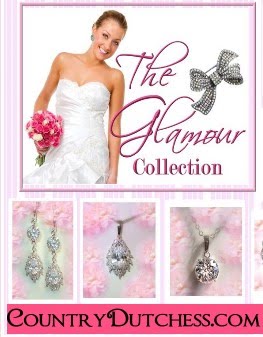





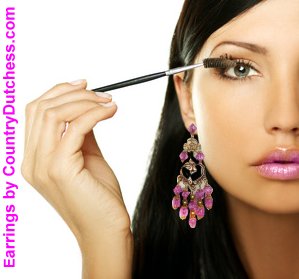
























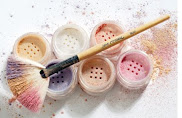
















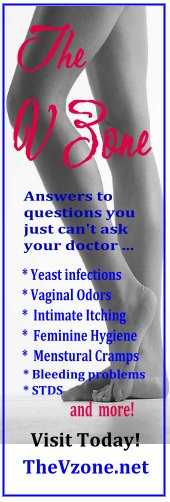

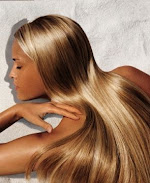












I have been suffering from menopausal symptoms like hot flashes and night sweats. I can't take hormones due to a history of cancer. I've had good success with black cohash and by sleeping in these great wicking pajamas called Cool-jams.
ReplyDeleteI read this book - The Hot Flash Solution - and there is a whole section in there on the wicking pajamas , sheets and pillow cases and those menopause pillows - it was very helpful in figuring out what to buy.
ReplyDelete